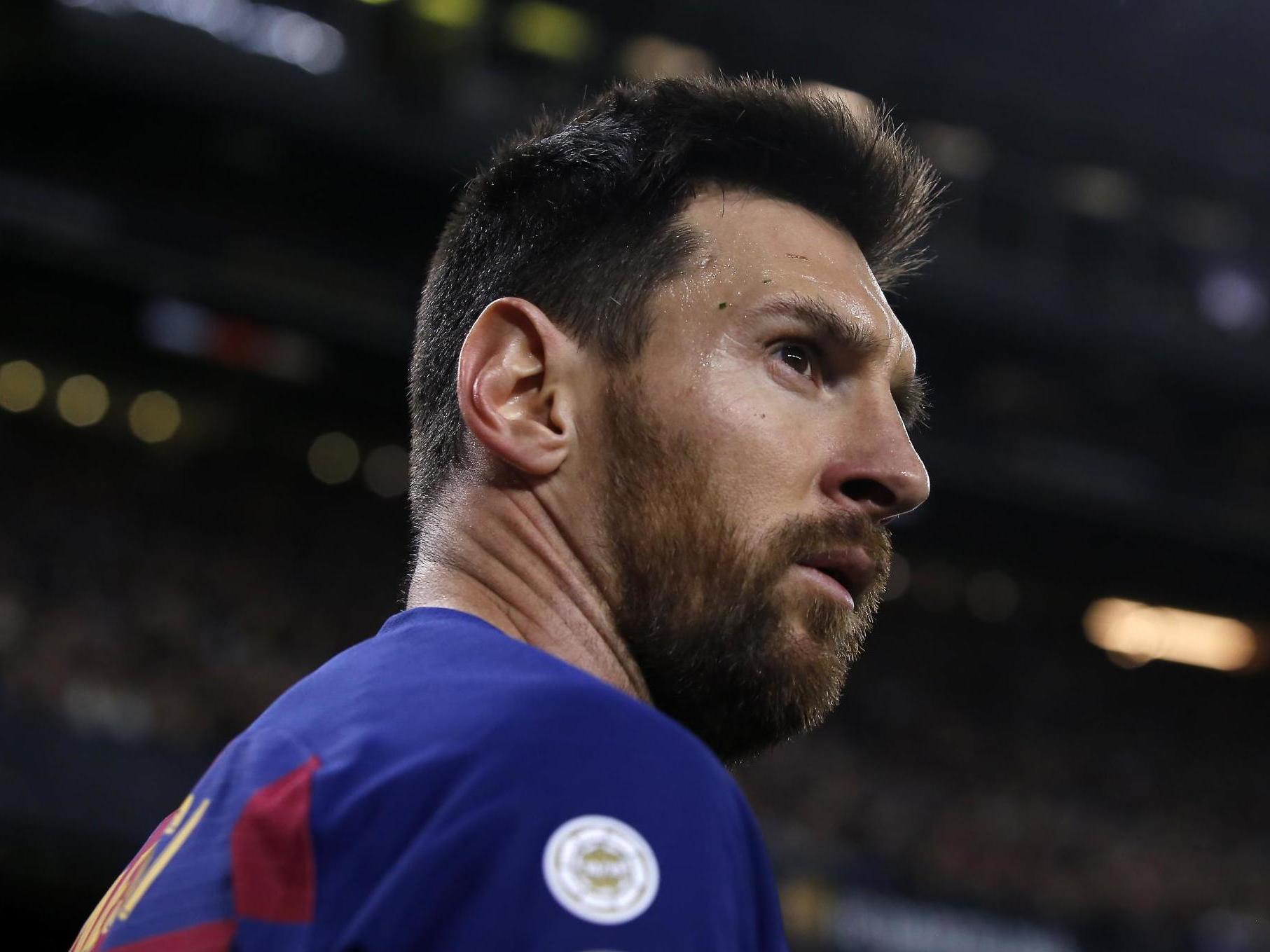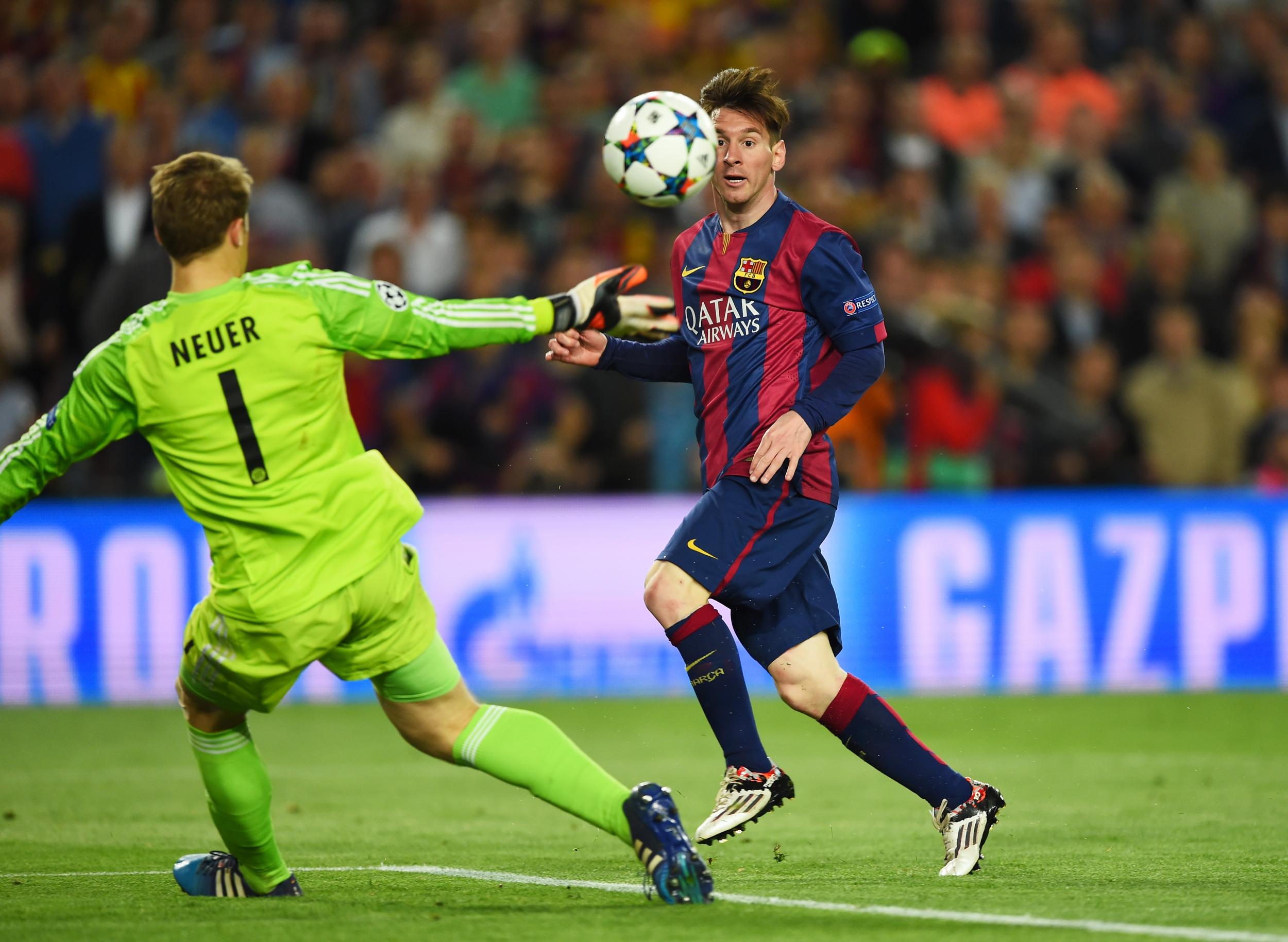In this Champions League, Lionel Messi’s magic has more power than ever
The format of this tournament makes the gravitational pull of the world’s finest player all the more influential, something Bayern Munich will be all too aware of

Your support helps us to tell the story
From reproductive rights to climate change to Big Tech, The Independent is on the ground when the story is developing. Whether it's investigating the financials of Elon Musk's pro-Trump PAC or producing our latest documentary, 'The A Word', which shines a light on the American women fighting for reproductive rights, we know how important it is to parse out the facts from the messaging.
At such a critical moment in US history, we need reporters on the ground. Your donation allows us to keep sending journalists to speak to both sides of the story.
The Independent is trusted by Americans across the entire political spectrum. And unlike many other quality news outlets, we choose not to lock Americans out of our reporting and analysis with paywalls. We believe quality journalism should be available to everyone, paid for by those who can afford it.
Your support makes all the difference.All of a sudden, Bayern Munich have a problem to solve. That isn’t a problem to do with their form, or any of their players. They know they’re a better team than Barcelona, and just much more competent in more areas.
They also know they have no one as good as Lionel Messi. The problem is thereby figuring out how far they can go with their own game, and how much they have to compromise it for the greatest player in the world.
That is Messi’s gravitational force, and how much his mere presence conditions everything around him in any given game.
He may well have a similar impact on the Champions League as a whole. That is what this finals format in Lisbon allows. Messi is keenly aware of this, and is said to have become “obsessed” with it.
For all of the Argentine’s career, he has been reminded of Diego Maradona’s performance in the 1986 World Cup, which has been set as the benchmark to reach. This isn’t a World Cup, and won’t compensate for Messi’s pain in that competition in the past, but the point is how a series of one-off games in a self-contained tournament do allow any one player to impose their will in a way that is usually impossible. Individual inspiration can be much more influential.
That is all to do with the sudden-death nature of the games. A team can be brilliant, and play brilliantly, but just be undone in an instant. Bayern could create a series of narrowly-missed opportunities against Barca and then see Messi go on one run.
A competition such as this is just more likely to be dictated by one great moment or performance. And nobody offers great moments or performances like Messi.
The ingenious last-16 goal against Napoli offered a first hint as to his focused attitude going into these finals. He knows the opportunity here, and what he can do.
He knows this is a unique chance to temporarily overcome the deficiencies in this Barcelona team that he is well aware of, and lift that fifth personal Champions League and the club’s sixth. That probably wouldn’t be so possible in a regular season. Bayern would be even bigger favourites if it was two legs. These finals, and Messi, may be great levellers.
As a case in point, consider Barcelona’s elimination last season. Messi put in one of his great displays in the first leg against Liverpool, scoring one of his great goals. It was a perfect free-kick. It was almost a perfect performance – but not a perfect situation. Barca weren’t good enough to prevent collapse against Liverpool. That’s what can happen the more games you play. Things level out. Reality asserts itself.
Liverpool 4-3 Barcelona was a pretty reasonable representation of the levels of the sides. Liverpool were at that point probably a fair bit better – but for one player.
If it was in these finals, Messi’s mood in one game would have been enough to go through. And he is in the mood now.
It also reflects an atmosphere around every big Barcelona game.
It is as if everything is now about Messi, to a greater degree than ever before. That isn’t just down to the ongoing rumblings he could leave the club. It’s down to the reality he may not have that long left, at least at this high level.
Messi turned 33 in mid-June, the kind of age where any injury robs you of time you may no longer have a lot of. It is why Kalidou Koulibaly’s challenge on Saturday for an instant felt like a worrying moment.
Messi is now wearing a bandage, but also a look of extreme focus.
The most relevant reality is that he is still on top level, at a physical peak, and performing as good as we’ve seen him.
Bayern just have to figure how to subdue him, how to try and shuttle him out of influence. The most defensive coaches long realised that it’s impossible to stop him altogether, so all you can do is work around him.
“It is not about stopping him but giving him a difficult match,” Jose Mourinho once said. “That is the best you do against him.”

Two of Bayern’s biggest players know this better than anyone. Mourinho actually made those comments in May 2015, at a Chelsea press conference the morning after Messi gave another of those career displays. He so stepped up to the occasion that he sat down both Jerome Boateng and Manuel Neuer with one brilliant goal.
They have over the last few days been warning their teammates how to move against Messi, what to do against him.
Manager Hansi Flick is trying to figure out similar. The dilemma for Bayern is whether their defensive approach to Messi takes anything away from their attacking approach, whether it compromises it.
That is his deeper effect in any given game. He conditions how you think and play.
Most dangerous of all, though, is how Messi can suddenly destroy you in an instant.
It could yet be the winning of this Champions League.
Join our commenting forum
Join thought-provoking conversations, follow other Independent readers and see their replies
Comments